- Home
- Oscar Wilde
50 Beautiful Christmas Stories Page 4
50 Beautiful Christmas Stories Read online
Page 4
“I wish I could!” and Randal meant what he said, for he was as tired of his own style as a watch-maker might be of the magnifying glass through which he strains his eyes all day. He knew that the heart was left out of his work, and that both mind and soul were growing morbid with dwelling on the faulty, absurd and metaphysical phases of life and character. He often threw down his pen and vowed he would write no more; but he loved ease and the books brought money readily; he was accustomed to the stimulant of praise and missed it as the toper misses his wine, so that which had once been a pleasure to himself and others was fast becoming a burden and a disappointment.
The brief pause which followed his involuntary betrayal of discontent was broken by Ruth, who exclaimed, with a girlish enthusiasm that overpowered girlish bashfulness,—
“I think all the novels are splendid! I hope you will write hundreds more, and I shall live to read ‘em.”
“Bravo, my gentle champion! I promise that I will write one more at least, and have a heroine in it whom your mother will both admire and love,” answered Randal, surprised to find how grateful he was for the girl’s approval, and how rapidly his trained fancy began to paint the background on which he hoped to copy this fresh, human daisy.
Abashed by her involuntary outburst, Ruth tried to efface herself behind Saul’s broad shoulder, and he brought the conversation back to its starting-point by saying in a tone of the most sincere interest,—
“Speaking of the serial, I am very anxious to know how your hero comes out. He is a fine fellow, and I can’t decide whether he is going to spoil his life marrying that silly woman, or do something grand and generous, and not be made a fool of.”
“Upon my soul, I don’t know myself. It is very hard to find new finales. Can’t you suggest something, Major? then I shall not be obliged to leave my story without an end, as people complain I am rather fond of doing.”
“Well, no, I don’t think I’ve anything to offer. Seems to me it isn’t the sensational exploits that show the hero best, but some great sacrifice quietly made by a common sort of man who is noble without knowing it. I saw a good many such during the war, and often wish I could write them down, for it is surprising how much courage, goodness and real piety is stowed away in common folks ready to show when the right time comes.”
“Tell us one of them, and I’ll bless you for a hint. No one knows the anguish of an author’s spirit when he can’t ring down the curtain on an effective tableau,” said Randal, with a glance at his friends to ask their aid in eliciting an anecdote or reminiscence.
“Tell about the splendid fellow who held the bridge, like Horatius, till help came up. That was a thrilling story, I assure you,” answered Sophie, with an inviting smile.
But Saul would not be his own hero, and said briefly:
“Any man can be brave when the battle-fever is on him, and it only takes a little physical courage to dash ahead.” He paused a moment, with his eyes on the snowy landscape without, where twilight was deepening; then, as if constrained by the memory that winter scene evoked, he slowly continued,—
“One of the bravest things I ever knew was done by a poor fellow who has been a hero to me ever since, though I only met him that night. It was after one of the big battles of that last winter, and I was knocked over with a broken leg and two or three bullets here and there. Night was coming on, snow falling, and a sharp wind blew over the field where a lot of us lay, dead and alive, waiting for the ambulance to come and pick us up. There was skirmishing going on not far off, and our prospects were rather poor between frost and fire. I was calculating how I’d manage, when I found two poor chaps close by who were worse off, so I braced up and did what I could for them. One had an arm blown away, and kept up a dreadful groaning. The other was shot bad, and bleeding to death for want of help, but never complained. He was nearest, and I liked his pluck, for he spoke cheerful and made me ashamed to growl. Such times make dreadful brutes of men if they haven’t something to hold on to, and all three of us were most wild with pain and cold and hunger, for we’d fought all day fasting, when we heard a rumble in the road below, and saw lanterns bobbing round. That meant life to us, and we all tried to holler; two of us were pretty faint, but I managed a good yell, and they heard it.
“‘Room for one more. Hard luck, old boys, but we are full and must save the worst wounded first. Take a drink, and hold on till we come back,’ says one of them with the stretcher.
“‘Here’s the one to go,’ I says, pointin’ out my man, for I saw by the light that he was hard hit.
“‘No, that one. He’s got more chances than I, or this one; he’s young and got a mother; I’ll wait,’ said the good feller, touchin’ my arm, for he ‘d heard me mutterin’ to myself about this dear old lady. We always want mother when we are down, you know.”
Saul’s eyes turned to the beloved face with a glance of tenderest affection, and Aunt Plumy answered with a dismal groan at the recollection of his need that night, and her absence.
“Well, to be short, the groaning chap was taken, and my man left. I was mad, but there was no time for talk, and the selfish one went off and left that poor feller to run his one chance. I had my rifle, and guessed I could hobble up to use it if need be; so we settled back to wait without much hope of help, everything being in a muddle. And wait we did till morning, for that ambulance did not come back till next day, when most of us were past needing it.
“I’ll never forget that night. I dream it all over again as plain as if it was real. Snow, cold, darkness, hunger, thirst, pain, and all round us cries and cursing growing less and less, till at last only the wind went moaning over that meadow. It was awful! so lonesome, helpless, and seemingly God-forsaken. Hour after hour we lay there side by side under one coat, waiting to be saved or die, for the wind grew strong and we grew weak.”
Saul drew a long breath, and held his hands to the fire as if he felt again the sharp suffering of that night.
“And the man?” asked Emily, softly, as if reluctant to break the silence.
“He was a man! In times like that men talk like brothers and show what they are. Lying there, slowly freezing, Joe Cummings told me about his wife and babies, his old folks waiting for him, all depending on him, yet all ready to give him up when he was needed. A plain man, but honest and true, and loving as a woman; I soon saw that as he went on talking, half to me and half to himself, for sometimes he wandered a little toward the end. I’ve read books, heard sermons, and seen good folks, but nothing ever came so close or did me so much good as seeing this man die. He had one chance and gave it cheerfully. He longed for those he loved, and let ‘em go with a good-by they couldn’t hear. He suffered all the pains we most shrink from without a murmur, and kept my heart warm while his own was growing cold. It’s no use trying to tell that part of it; but I heard prayers that night that meant something, and I saw how faith could hold a soul up when everything was gone but God.”
Saul stopped there with a sudden huskiness in his deep voice, and when he went on it was in the tone of one who speaks of a dear friend.
“Joe grew still by and by, and I thought he was asleep, for I felt his breath when I tucked him up, and his hand held on to mine. The cold sort of numbed me, and I dropped off, too weak and stupid to think or feel. I never should have waked up if it hadn’t been for Joe. When I came to, it was morning, and I thought I was dead, for all I could see was that great field of white mounds, like graves, and a splendid sky above. Then I looked for Joe, remembering; but he had put my coat back over me, and lay stiff and still under the snow that covered him like a shroud, all except his face. A bit of my cape had blown over it, and when I took it off and the sun shone on his dead face, I declare to you it was so full of heavenly peace I felt as if that common man had been glorified by God’s light, and rewarded by God’s ‘Well done.’ That’s all.”
No one spoke for a moment, while the women wiped their eyes, and Saul dropped his as if to hide something softer than tears.
“It was very noble, very touching. And you? how did you get off at last?” asked Randal, with real admiration and respect in his usually languid face.
“Crawled off,” answered Saul, relapsing into his former brevity of speech.
“Why not before, and save yourself all that misery?”
“Couldn’t leave Joe.”
“Ah, I see; there were two heroes that night.”
“Dozens, I’ve no doubt. Those were times that made heroes of men, and women, too.”
“Tell us more;” begged Emily, looking up with an expression none of her admirers ever brought to her face by their softest compliments or wiliest gossip.
“I’ve done my part. It’s Mr. Randal’s turn now;” and Saul drew himself out of the ruddy circle of firelight, as if ashamed of the prominent part he was playing.
Sophie and her friend had often heard Randal talk, for he was an accomplished raconteur, but that night he exerted himself, and was unusually brilliant and entertaining, as if upon his mettle. The Bassets were charmed. They sat late and were very merry, for Aunt Plumy got up a little supper for them, and her cider was as exhilarating as champagne. When they parted for the night and Sophie kissed her aunt, Emily did the same, saying heartily,—
“It seems as if I’d known you all my life, and this is certainly the most enchanting old place that ever was.”
“Glad you like it, dear. But it ain’t all fun, as you’ll find out to-morrow when you go to work, for Sophie says you must,” answered Mrs. Basset, as her guests trooped away, rashly promising to like everything.
They found it difficult to keep their word when they were called at half past six next morning. Their rooms were warm, however, and they managed to scramble down in time for breakfast, guided by the fragrance of coffee and Aunt Plumy’s shrill voice singing the good old hymn—
Lord, in the morning Thou shalt hear
My voice ascending high.
An open fire blazed on the hearth, for the cooking was done in the lean-to, and the spacious, sunny kitchen was kept in all its old-fashioned perfection, with the wooden settle in a warm nook, the tall clock behind the door, copper and pewter utensils shining on the dresser, old china in the corner closet and a little spinning wheel rescued from the garret by Sophie to adorn the deep window, full of scarlet geraniums, Christmas roses, and white chrysanthemums.
The young lady, in a checked apron and mob-cap, greeted her friends with a dish of buckwheats in one hand, and a pair of cheeks that proved she had been learning to fry these delectable cakes.
“You do ‘keep it up’ in earnest, upon my word; and very becoming it is, dear. But won’t you ruin your complexion and roughen your hands if you do so much of this new fancy-work?” asked Emily, much amazed at this novel freak.
“I like it, and really believe I’ve found my proper sphere at last. Domestic life seems so pleasant to me that I feel as if I’d better keep it up for the rest of my life,” answered Sophie, making a pretty picture of herself as she cut great slices of brown bread, with the early sunshine touching her happy face.
“The charming Miss Vaughan in the role of a farmer’s wife. I find it difficult to imagine, and shrink from the thought of the wide-spread dismay such a fate will produce among her adorers,” added Randal, as he basked in the glow of the hospitable fire.
“She might do worse; but come to breakfast and do honor to my handiwork,” said Sophie, thinking of her worn-out millionnaire, and rather nettled by the satiric smile on Randal’s lips.
“What an appetite early rising gives one. I feel equal to almost anything, so let me help wash cups,” said Emily, with unusual energy, when the hearty meal was over and Sophie began to pick up the dishes as if it was her usual work.
Ruth went to the window to water the flowers, and Randal followed to make himself agreeable, remembering her defence of him last night. He was used to admiration from feminine eyes, and flattery from soft lips, but found something new and charming in the innocent delight which showed itself at his approach in blushes more eloquent than words, and shy glances from eyes full of hero-worship.
“I hope you are going to spare me a posy for to-morrow night, since I can be fine in no other way to do honor to the dance Miss Sophie proposes for us,” he said, leaning in the bay window to look down on the little girl, with the devoted air he usually wore for pretty women.
“Anything you like! I should be so glad to have you wear my flowers. There will be enough for all, and I’ve nothing else to give to people who have made me as happy as cousin Sophie and you,” answered Ruth, half drowning her great calla as she spoke with grateful warmth.
“You must make her happy by accepting the invitation to go home with her which I heard given last night. A peep at the world would do you good, and be a pleasant change, I think.”
“Oh, very pleasant! but would it do me good?” and Ruth looked up with sudden seriousness in her blue eyes, as a child questions an elder, eager, yet wistful.
“Why not?” asked Randal, wondering at the hesitation.
“I might grow discontented with things here if I saw splendid houses and fine people. I am very happy now, and it would break my heart to lose that happiness, or ever learn to be ashamed of home.”
“But don’t you long for more pleasure, new scenes and other friends than these?” asked the man, touched by the little creature’s loyalty to the things she knew and loved.
“Very often, but mother says when I’m ready they will come, so I wait and try not to be impatient.” But Ruth’s eyes looked out over the green leaves as if the longing was very strong within her to see more of the unknown world lying beyond the mountains that hemmed her in.
“It is natural for birds to hop out of the nest, so I shall expect to see you over there before long, and ask you how you enjoy your first flight,” said Randal, in a paternal tone that had a curious effect on Ruth.
To his surprise, she laughed, then blushed like one of her own roses, and answered with a demure dignity that was very pretty to see.
“I intend to hop soon, but it won’t be a very long flight or very far from mother. She can’t spare me, and nobody in the world can fill her place to me.”
“Bless the child, does she think I’m going to make love to her,” thought Randal, much amused, but quite mistaken. Wiser women had thought so when he assumed the caressing air with which he beguiled them into the little revelations of character he liked to use, as the south wind makes flowers open their hearts to give up their odor, then leaves them to carry it elsewhere, the more welcome for the stolen sweetness.
“Perhaps you are right. The maternal wing is a safe shelter for confiding little souls like you, Miss Ruth. You will be as comfortable here as your flowers in this sunny window,” he said, carelessly pinching geranium leaves, and ruffling the roses till the pink petals of the largest fluttered to the floor.
As if she instinctively felt and resented something in the man which his act symbolized, the girl answered quietly, as she went on with her work, “Yes, if the frost does not touch me, or careless people spoil me too soon.”
Before Randal could reply Aunt Plumy approached like a maternal hen who sees her chicken in danger.
“Saul is goin’ to haul wood after he’s done his chores, mebbe you’d like to go along? The view is good, the roads well broke, and the day uncommon fine.”
“Thanks; it will be delightful, I dare say,” politely responded the lion, with a secret shudder at the idea of a rural promenade at 8 A.M. in the winter.
“Come on, then; we’ll feed the stock, and then I’ll show you how to yoke oxen,” said Saul, with a twinkle in his eye as he led the way, when his new aide had muffled himself up as if for a polar voyage.
“Now, that’s too bad of Saul! He did it on purpose, just to please you, Sophie,” cried Ruth presently, and the girls ran to the window to behold Randal bravely following his host with a pail of pigs’ food in each hand, and an expression of resigned disgust upon his aristocratic face.
“To what base uses may we come,” quoted Emily, as they all nodded and smiled upon the victim as he looked back from the barn-yard, where he was clamorously welcomed by his new charges.
“It is rather a shock at first, but it will do him good, and Saul won’t be too hard upon him, I’m sure,” said Sophie, going back to her work, while Ruth turned her best buds to the sun that they might be ready for a peace-offering to-morrow.
There was a merry clatter in the big kitchen for an hour; then Aunt Plumy and her daughter shut themselves up in the pantry to perform some culinary rites, and the young ladies went to inspect certain antique costumes laid forth in Sophie’s room.
“You see, Em, I thought it would be appropriate to the house and season to have an old-fashioned dance. Aunt has quantities of ancient finery stowed away, for great-grandfather Basset was a fine old gentleman and his family lived in state. Take your choice of the crimson, blue or silver-gray damask. Ruth is to wear the worked muslin and quilted white satin skirt, with that coquettish hat.”
“Being dark, I’ll take the red and trim it up with this fine lace. You must wear the blue and primrose, with the distracting high-heeled shoes. Have you any suits for the men?” asked Emily, throwing herself at once into the all-absorbing matter of costume.
“A claret velvet coat and vest, silk stockings, cocked hat and snuff-box for Randal. Nothing large enough for Saul, so he must wear his uniform. Won’t Aunt Plumy be superb in this plum-colored satin and immense cap?”
A delightful morning was spent in adapting the faded finery of the past to the blooming beauty of the present, and time and tongues flew till the toot of a horn called them down to dinner.

 The Picture of Dorian Gray
The Picture of Dorian Gray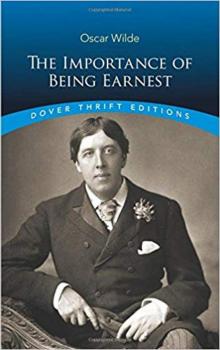 The Importance of Being Earnest
The Importance of Being Earnest An Ideal Husband
An Ideal Husband Miscellaneous Aphorisms; The Soul of Man
Miscellaneous Aphorisms; The Soul of Man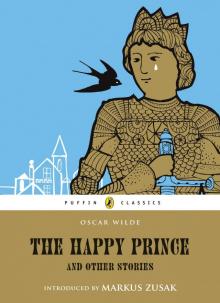 The Happy Prince and Other Tales
The Happy Prince and Other Tales The Canterville Ghost: Annotated
The Canterville Ghost: Annotated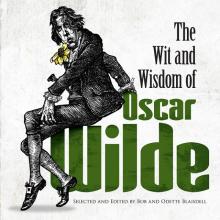 The Wit and Wisdom of Oscar Wilde
The Wit and Wisdom of Oscar Wilde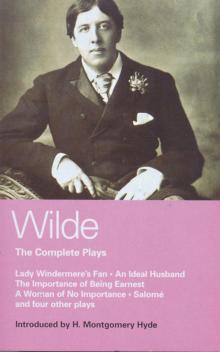 The Complete Plays
The Complete Plays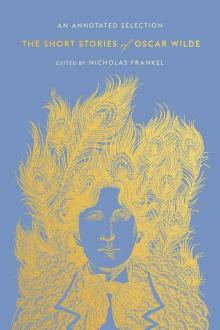 The Short Stories of Oscar Wilde
The Short Stories of Oscar Wilde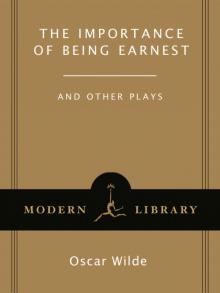 The Importance of Being Earnest: And Other Plays
The Importance of Being Earnest: And Other Plays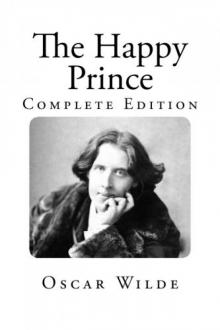 The Happy Prince (Oscar Wilde Classics)
The Happy Prince (Oscar Wilde Classics)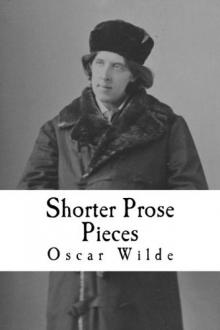 Shorter Prose Pieces
Shorter Prose Pieces Importance of Being Earnest
Importance of Being Earnest Selected Tales: Shorter Prose Pieces
Selected Tales: Shorter Prose Pieces The Penny Dreadfuls MEGAPACK™
The Penny Dreadfuls MEGAPACK™ The Complete Short Fiction
The Complete Short Fiction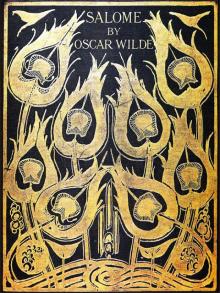 The Illustrated Salomé in English & French (with Active Table of Contents)
The Illustrated Salomé in English & French (with Active Table of Contents)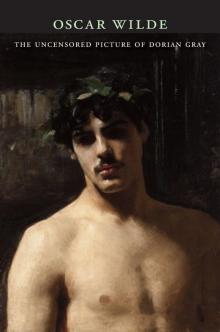 The Uncensored Picture of Dorian Gray
The Uncensored Picture of Dorian Gray Oscar Wilde Miscellaneous: A Florentine Tragedy - a Fragment, and La Sainte Courtisane - a Fragment
Oscar Wilde Miscellaneous: A Florentine Tragedy - a Fragment, and La Sainte Courtisane - a Fragment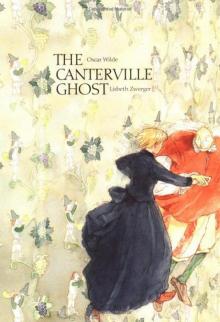 The Canterville Ghost (Illustrated by WALLACE GOLDSMITH)
The Canterville Ghost (Illustrated by WALLACE GOLDSMITH) Complete Works of Oscar Wilde
Complete Works of Oscar Wilde The Picture of Dorian Gray: The Uncensored Original Text (Annotated) (First Ebook Edition)
The Picture of Dorian Gray: The Uncensored Original Text (Annotated) (First Ebook Edition)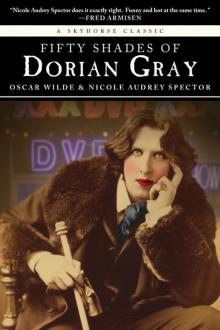 Fifty Shades of Dorian Gray
Fifty Shades of Dorian Gray Oscar Wilde's Stories for All Ages
Oscar Wilde's Stories for All Ages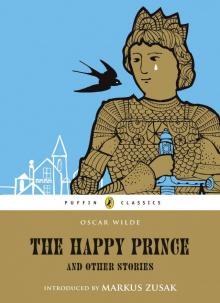 The Happy Prince & Other Stories (Puffin Classics Relaunch)
The Happy Prince & Other Stories (Puffin Classics Relaunch)